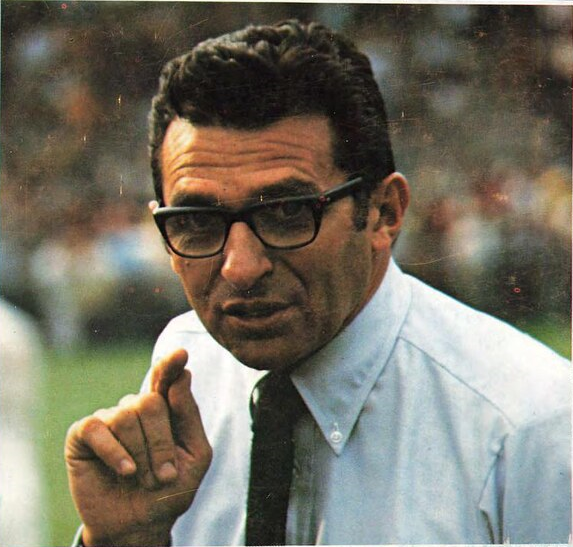Brooklyn born, football bred. That's how the story starts for Joe Paterno, who came into this world on December 21, 1926. Growing up in the rough-and-tumble streets of Brooklyn, young Joe found his calling not in the family's law practice, but on the football field.
From Brooklyn to Brown: The Early Years
Picture a skinny kid with thick glasses, nose buried in books one minute and calling plays the next. That was Joe at Brooklyn Prep, where he wasn't just scoring touchdowns – he was acing Latin and dreaming big. Smart as a whip and quick on his feet, Joe landed at Brown University, where he didn't just play quarterback – he rewrote the school's record books while studying English lit.
Trading Playbooks for Law Books? Not Quite
After graduating from Brown in 1950, Joe had a choice: follow his dad's footsteps into law or chase his football dreams. The $50-a-week coaching gig at Penn State wasn't exactly hitting the jackpot, but Joe saw something special in Happy Valley. "I'll try it for a year," he told his dad. That "year" turned into a lifetime.
Building the Penn State Dynasty
When Joe took over as head coach in 1966, Penn State was just another football program. But Joe? He had bigger plans. He didn't just coach football – he built a powerhouse. His players didn't just learn X's and O's; they learned life lessons that stuck with them long after they hung up their cleats.
Career Highlights
- 409 wins (more than any other Division I coach)
- 2 national championships (1982, 1986)
- 5 undefeated seasons
- 24 bowl game victories
- 78% of his players graduated
The Grand Experiment
Joe called it his "Grand Experiment" – the crazy idea that college athletes could excel both on the field and in the classroom. While other coaches just wanted winners, Joe wanted scholars in shoulder pads. His players didn't just bash heads on Saturday; they hit the books hard too.
Beyond the Numbers
Stats tell one story, but Joe's real impact goes deeper. Ask his former players, and they'll tell you about the little things:
- The Sunday morning calls to check on their studies
- The tough love when they needed it
- The way he'd remember their parents' names, years after graduation
- His infamous thick glasses and rolled-up pants legs (a fashion statement that never quite caught on)
The House That Joe Built
Beaver Stadium grew from a modest 46,284 seats to a roaring cathedral of 106,572 under Joe's watch. The place became known as the toughest spot to play in college football. On game days, the whole town turned into a sea of blue and white – a tradition that lives on today.
The Penn State Way
Joe didn't just create a football program; he created a culture. The plain blue and white uniforms with no names on the back. The black shoes. The simple game plans executed to perfection. It wasn't flashy, but boy, did it work.
More Than Just Football
Sure, Joe won games – lots of them. But his proudest achievement? The library that bears his name on Penn State's campus. He and his wife Sue raised millions for Penn State academics and gave over $4 million of their own money to the university.
Legacy of Leadership
Joe's coaching tree sprouted branches all over college football. His former assistants and players went on to lead programs across the country, spreading his philosophy of tough, smart football combined with academic excellence.
The Final Score
In the end, Joe Paterno wasn't just a football coach. He was a teacher, mentor, and builder of men. His legacy lives on in the thousands of lives he touched, the program he built, and the values he instilled in countless players and coaches.
"Success without honor is an unseasoned dish. It will satisfy your hunger, but it won't taste good."
The numbers are impressive – 409 wins, five perfect seasons, packed stadiums, and championship rings. But ask anyone who knew Joe, and they'll tell you his real victory wasn't counted on any scoreboard. It was in the doctors, lawyers, teachers, and leaders he helped create, one season at a time.
